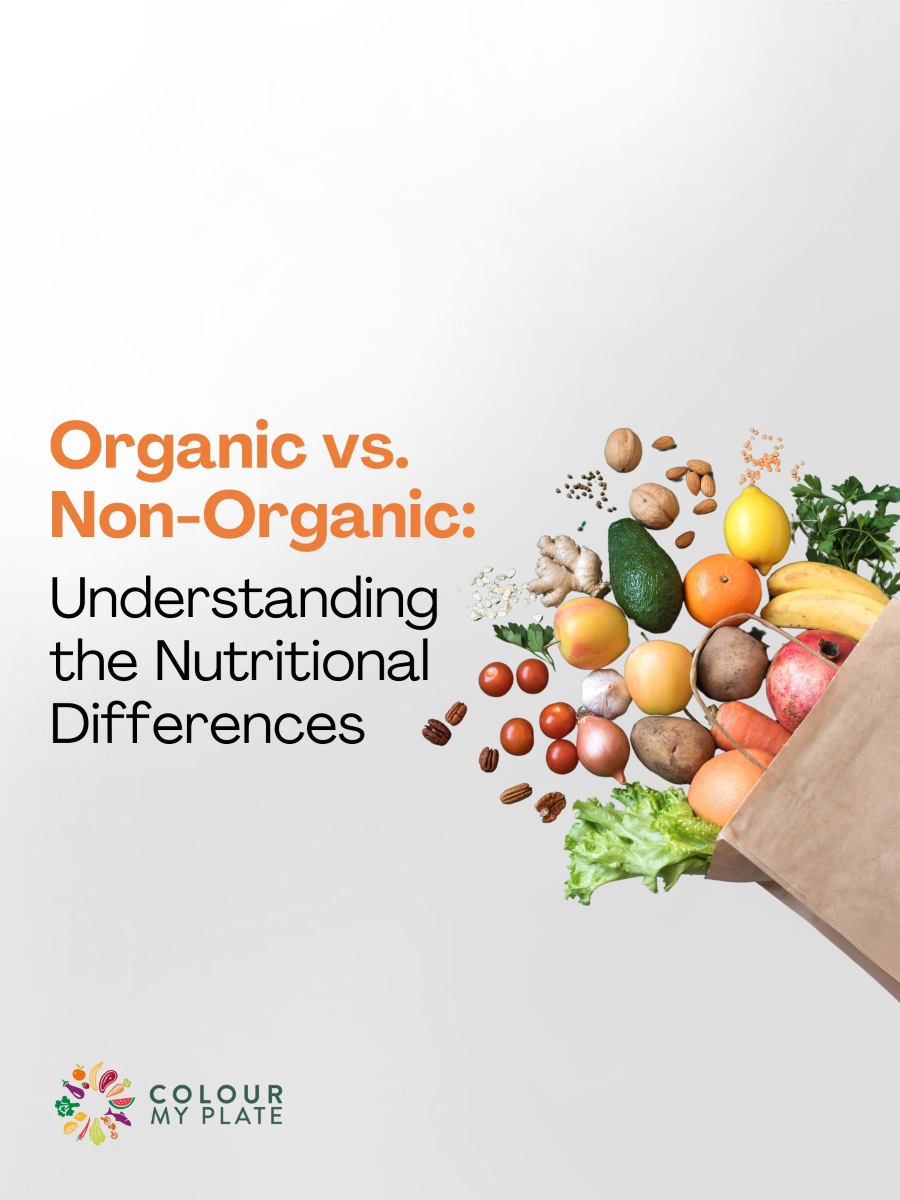
![]() 9 Oct 2024
9 Oct 2024
In today’s health-conscious society, the choices we make about food can significantly impact our well-being. One major decision consumers face is whether to choose organic vs. non-organic products.This choice can often be confusing, particularly when it comes to understanding their nutritional values. In this blog post, we’ll explore the essential differences between organic and non-organic foods to help you make informed decisions that benefit your health.
Organic foods are produced without synthetic pesticides, fertilizers, or genetically modified organisms (GMOs). The organic movement grew in response to concerns about the health and environmental impacts of industrial agriculture.
In contrast, non-organic foods are grown using synthetic chemicals and modern farming technologies to maximize yields. While they dominate the market, concerns over chemicals and sustainability have fueled the popularity of organic alternatives.
While both organic and non-organic foods provide essential nutrients, there are some notable differences:
Organic foods typically have significantly lower levels of synthetic pesticide residues, which may reduce the risk of long-term health issues. Although the residues on non-organic foods are within safety limits, some consumers prefer to minimize exposure.
Research suggests organic crops may have higher levels of vitamins, minerals, and antioxidants. For example, organic produce could have up to 60% more antioxidants, which are important for immune health and disease prevention.
Organic meat and dairy often contain more omega-3 fatty acids, which are vital for heart health and reducing inflammation. Grass-fed organic animals generally produce more nutritious products than conventionally raised livestock.
By avoiding synthetic pesticides and GMOs, organic foods may offer a cleaner option for those concerned about chemical exposure.
Organic farming practices result in healthier soils, which can lead to more nutrient-rich crops.
Organic dairy and meat typically contain more beneficial fats due to the animals’ natural diet and farming conditions.
While organic foods offer benefits, they can be more expensive. Experts often suggest a balanced approach. Prioritize organic versions of high-pesticide foods, such as apples and spinach and opt for non-organic options where there’s less risk, like avocados or onions.
Ultimately, both organic and non-organic foods can contribute to a healthy diet. Eating a variety of fruits, vegetables, whole grains, and proteins is key to meeting your nutritional needs.
Choosing between organic and non-organic products ultimately comes down to personal preference and budget. Organic foods may offer fewer chemicals and potentially higher nutrients, but non-organic products also provide essential nutrition. Whether you go fully organic or mix and match, the goal is to maintain a balanced, nutrient-rich diet that supports your overall health. By being informed about your food choices, you can enjoy the benefits of both organic and non-organic foods in your diet.

We noticed you haven't completed your delivery details.

Your message is sent